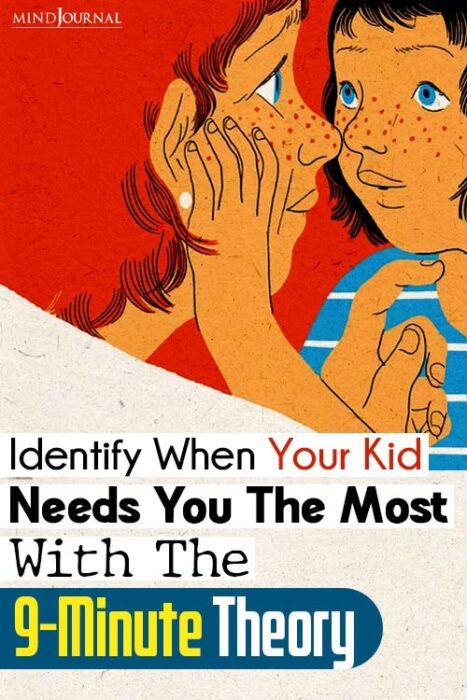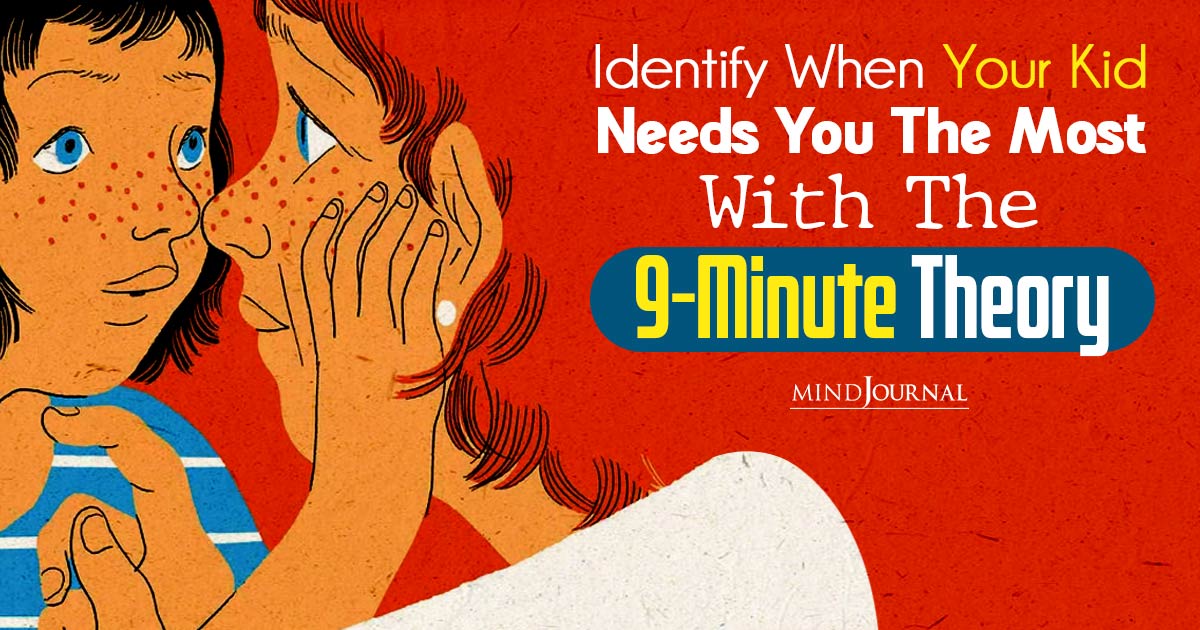Are you a parent who wants to build a better relationship with your children? Then welcome to the Nine Minute Theory. This game-changer in parenting has been making waves among moms and dads everywhere.
Sara Martinez, a mother of a toddler, scrolls through TikTok looking for advice. Out of all the comments flooding her screen, one catches her eye – the 9 Minute Theory.
She does some digging and what she finds not only brings her closer to her 19-month-old daughter Millie but also relieves some of her ‘mom guilt.’
So What Is The Nine Minute Theory?

This is about knowing the 9 most important minutes in a child’s day, only made for busy parents who are short on time. It asks them to focus on three key moments each day with their kids: the wake-up ritual, post-school/daycare catch-up, and bedtime wind-down.
Related: 6 Signs You’re Ready To Start A Family
Sara doesn’t set aside exactly nine minutes of quality time with Millie. Instead, she creates pockets free from distractions where they can connect. And the outcome? Their relationship transforms – as does Sara’s life when freed from under the weight of mom guilt.
As soon as Sara lets everyone in on this secret via TikTok, things really kick off. Nearly 600k pairs of eyes watch her video and floods of comments pour in – clearly, parents worldwide are resonating with knowing the most important 9 minutes of a child’s day.
But who came up with it all? None other than Jaak Panksepp Ph.D., a renowned affective neuroscientist who sadly passed away last year. His creation called “The Nine Minute Program” shows how emotions shape our lives based on his amazing research.
Working alongside Panksepp was Eric Dubow Ph.D., an esteemed research professor that contributed greatly towards developing this life-changing 9 minute theory.
9 most important minutes in a child’s day
1. Wake-Up Wonder
Out of the most important 9 minutes of a child’s day – the first three minutes after they wake up from dreaming land; imagine sleepy eyes blinking open or small arms reaching out for morning snuggles – these are yours to savor.
2. After-School Shuffle
The three minutes after school or daycare filled with backpacks, snacks and all the stories from their day. Take advantage of this chaotic time to re-connect, listen and be present in their world.
3. Bedtime Bliss
The last three minutes before another day closes it’s curtains. Here, in the stillness of night – wrap them up tight with warmth, love and the knowledge that they’re safe and cherished.
It’s not about how many minutes but rather connecting deeply within each moment shared; whether it be a laugh together, secret whispered or hug given – these pockets have power when it comes to nurturing your bond as parent and child.
And guess what? You don’t need a Ph.D. in Neuroscience to make use of the Nine Minute Theory. It’s actually quite simple but profound reminder for us all (especially those who may feel like their days are slipping through fingertips) – slow down, enjoy each fleeting second and appreciate this wild ride called motherhood/fatherhood!
So here’s some encouragement for tired mums/dads trying balance million things at once… In just nine scattered throughout your busy routine can you create memories? bond? bring little bit magic into mundane
Related: 6 Unique Parenting Practices In Different Cultures To Learn From
The Nine Minute Theory summons us away from all the diversions of life and back to the one thing that really counts – the age-old dance of love between parent and child.
So take those nine minutes, embrace them even, and see how they can thread through your family’s narrative!










Leave a Reply